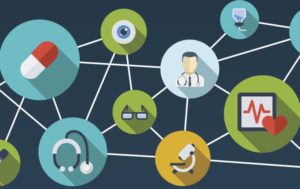 New developments in China’s medical industry point to a potential future in which AI could replace human doctors to a considerable degree.
New developments in China’s medical industry point to a potential future in which AI could replace human doctors to a considerable degree.
The nascent trend can be seen in Ping An Good Doctor, a recently-established subsidiary of the Ping An holding conglomerate. The company offers AI-assisted medical services, centered around a mobile app that prompts users to enter their medical information and report symptoms, and then uses AI to remotely connect them to an appropriate doctor.
Ping An Good Doctor is also working on peripheral hardware such as a pulse-monitoring bracelet that can interface with its larger medical AI platform, which the company showcased at the 2018 World AI Expo.
[symple_button url=”http://eepurl.com/dFvTtT” color=”red” size=”default” border_radius=”3px” target=”self” rel=”” icon_left=”” icon_right=””]Interested in AI? Sign up for our specialty newsletter, AI ID[/symple_button]
As Agence France-Presse reports, this kind of technology could have a dramatic impact on healthcare in China, where patients in ‘second- and third-tier cities’ only have access to basic hospital facilities with limited capabilities. It will, of course, take time for the state of the art in medical AI to reach anywhere near the level of human doctors, but efforts elsewhere have already demonstrated that specialized AI systems can develop highly sophisticated diagnostic capabilities for particular health issues. As more of those specialized programs emerge, and AI ‘receptionists’ like that of Ping An Good Doctor grow more sophisticated, it’s easy to imagine that a great deal of medical consultation will be automated in the years to come.
Source: CTV News

Follow Us